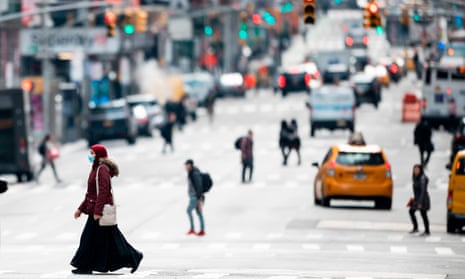Officials around the world say “physical distancing” is the key to slowing the spread of coronavirus. Are there any safe ways to socialize, and what do you do if you live with someone who’s throwing caution to the wind? We asked three experts for their thoughts.
What does physical distancing entail?
Dr Arthur L Caplan: “Stay indoors, stay away from others as much as you can, and get your food delivered. Minimize your trips out for medicine or to the grocery store. Bring your hand sanitizer and use it all the time. Don’t shake hands. Don’t use paper money. Get ready to do a lot of television watching. You should call your shut-in parents and so forth.”
Dr Thomas Chin-Chia Tsai: “This is the time to leverage the technology that can connect us – using FaceTime to share moments with loved ones. Call and talk to your friends and family members on the phone. While these measures may be extreme, keep in mind that it is not forever. We are at a critical inflection point in the trajectory of the Covid-19 infection and we have a window of opportunity to act now and minimize community transmission.”
Is it safe to have friends over?
Tsai: “This is not the time to have friends over. We are learning that Covid-19 transmission can happen through asymptomatic carriers. The goal is to decrease the probability of transmissions, and anything to decrease that – such as not having friends over – is needed. It’s hard and it’s against the basic human instinct, but it’s what’s needed now.”
If my roommate or partner isn’t practicing physical distancing, how can I protect myself?
Tsai: “I would recommend that you would still follow the same physical distancing principles. The ultimate goal is to break the chain of transmission. If you can maintain your own distance sort of respectfully, then you can still minimize not just the risk to yourself but also the risk from you potentially transmitting to other friends and families in your social circle. Each individual is an opportunity to break that transmission. So even though others around you may be in less than ideal physical distancing scenarios, there’s an important individual obligation to do what you can within reasonable or social bounds.”
Caplan: “Do your best to socially distance. Maybe don’t sleep in the same bed? Minimize sexual contact. Don’t share toothbrushes. Try to use separate things. You don’t want to be hugging and kissing. You always want to use good hygiene in terms of sneezing and coughing and still doing the handwashing thing frequently. You want to clean surfaces frequently. You might not want to share the same forks and knives unless you’re really sure they’ve been washed thoroughly. That kind of thing. You can have a discussion about how you would divide up your living space – but if they won’t go along, get away.”
How do you recommend talking about social distancing with a partner or roommate?
Tsai: “Explain that the goal is to decrease the risk of infecting a lot of people at the same time. And that as an individual, it may seem that you have very little agency in the progression of Covid-19, but that you actually have a very real role and a very important role in breaking the transmission, because for every individual who gets infected, two to three others will be affected. That’s two or three loved ones or friends you could potentially prevent from getting infected.”
Dr Arthur L Caplan is a professor and founding head of the division of medical ethics at NYU School of Medicine
Dr Thomas Chin-Chia Tsai is a surgeon and health policy researcher at Brigham and Women’s Hospital and Harvard TH Chan School of Public Health
